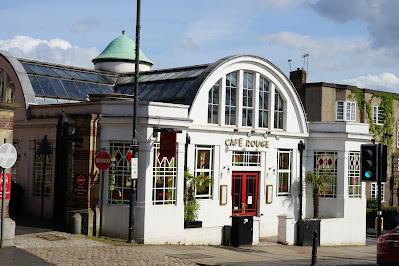
If you don't know this building in St Albans, you might not guess its original purpose. The best clue is perhaps not the stained glass, or the curved gables, but the glass roof.
The building was designed in 1930 by Percival Blow for Samuel Ryder, owner of the Ryder seed company. It was an exhibition hall, used to display their seeds and plants.
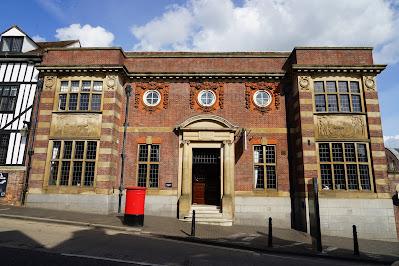
The hall was next to the company's head office, built in 1911 on the site of a 16th-century coaching inn. While it had been designed by the same architect, and both are Grade II listed, the two have little in common. The hall has the simple curves and clean lines of its era while the offices draw upon a range of influences, with arts and crafts notes, classical accents and terracotta reliefs. The listing text describes it as a 'combination of Arts and Crafts and Wrenaissance styles.'
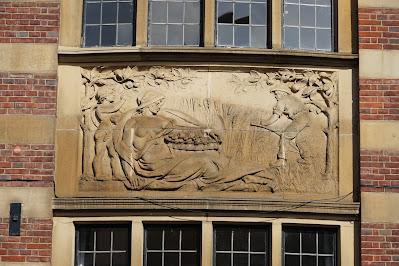
The stone reliefs, aptly, show agricultural scenes. (They also have a scantily clad god and goddess in the foreground.)
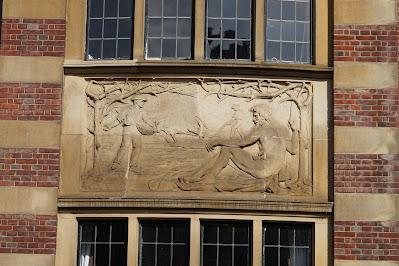
Ryder was not a St Albans native: he was born and grew up in the North West of England and only moved to the town in his thirties. The son of a market gardener, he realised that gardening was too expensive for many people and had an inspired idea. He sold penny packets of seeds by post, which proved both affordable for his customers and successful as a business. It had started in his garden shed in 1895; by 1903 it had 90 employees and had moved to Holywell Hill. Ryder chose St Albans for its good transport links and made it his permanent home. He served on the council, was an alderman and magistrate, and even mayor.
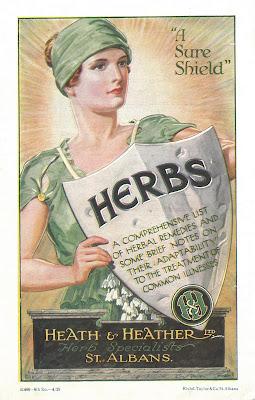
In 1920, Ryder and his brother set up another business, Heath and Heather, which continues to provide herbal teas and infusions today. (It also developed a chain of shops, later sold and now known as Holland Barrett.) The original seed business, meanwhile, would be taken over by Suttons Seeds. However, Ryder's name is best known today through his hobby. He took up golf at the age of 49, became passionaately interested in it and turned the Heath and Heather business over to his daughter. Soon, he was golf club captain and began to sponsor tournaments. In 1927, he went on to found the Ryder Cup.

